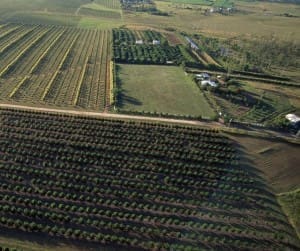Tools & Resources for Working with Farms with Commercial Agricultural Potential
April 20, 2017 • Belfast, Maine
How do commercial farm buyers differ from other rural property buyers?
Many real estate professionals have a sincere interest in seeing working farms stay in production, and seek insights and guidance about how to market farms or farmland with commercial potential. Farm seekers are growing more sophisticated, and a primary tool that many farm seekers use in their farm search is the MLS and other real estate listings.
 Land For Good seeks to raise awareness and provide education and support to real estate professionals to improve the conditions under which many aspiring, beginning and established farmers seek land. This training, entitled Tools and Resources for Working with Farms with Commercial Agricultural Potential, aims to better connect real estate professionals and commercial farm buyers.
Land For Good seeks to raise awareness and provide education and support to real estate professionals to improve the conditions under which many aspiring, beginning and established farmers seek land. This training, entitled Tools and Resources for Working with Farms with Commercial Agricultural Potential, aims to better connect real estate professionals and commercial farm buyers.
There are many ways that farm buyers and sellers connect. Many farms are sold by word-of-mouth or via long-term relationships between the buyer and seller,” says Jo Barrett, Maine Field Agent for Land For Good. “Others are offered publicly as for sale-by-owner, increasingly with the help of tools such as Maine FarmLink and New England Farm Finder. Licensed real estate agents also have an important role to play in farm purchase and sales.”
This training helps real estate licensees identify characteristics of the commercial farm buyer, plus how to reach them, identify & describe property characteristics important to the commercial farm buyer, introduce legal and tax issues of specific relevance to farms, identify farm financing options, and outline conservation easements and issues which need to be considered when selling farms that have existing conservation easements.
Contact us to learn more about this training or propose a training session to your area. If you’re in Maine, contact jo@landforgood.org for a consultation. If you’re elsewhere in New England, contact LFG through our website or email info@landforgood.org. Our staff is available to help.
Following are the materials for training participants.
Agenda
Course Description by Land For Good
Online Resources & Links by Land For Good
GranitViewII Tutorial – A Resource for Farm Mapping by Land For Good
Farm Evaluation Checklist by Land For Good
Farm Rental Assessment Checklist by Intervale Center, UVM Extension, SARE
Maine Government Property Tax Bulletin No. 20
Maine Government Application for Farmland Classification
What is a Conservation Easement? by Maine Farmland Trust
Steps in the Conservation Easement Process by Maine Farmland Trust
Agricultural Conservation Easements FAQs by Maine Farmland Trust
Purchased Easements FAQs by Maine Farmland Trust
Donated Easements FAQs by Maine Farmland Trust
Donated Easements -Who Pays For What? by Maine Farmland Trust
Technical Bulletin: Conservation Easement Stewardship by Maine Farmland Trust
All materials are subject to copyright.
With special thanks to the following individuals and organizations for assistance in developing these tools and resources:
Jo Barrett, Maine Field Agent, Land For Good
Mike Ghia, Vermont Field Agent, Land For Good
Nina Young, Maine Farms Realty
Sue Lanpher, Maine Farmland Trust
Ben Waterman, New Farmers for New American Program Coordinator, UVM Center for Sustainable Agriculture
Jon Ramsey, Director of Farmland Access Program, Vermont Land Trust
Peg Merrens, VP Conservation, Upper Valley Land Trust
Editor’s note: LFG will be repeating this training in southern Maine, as well as other New England states.

